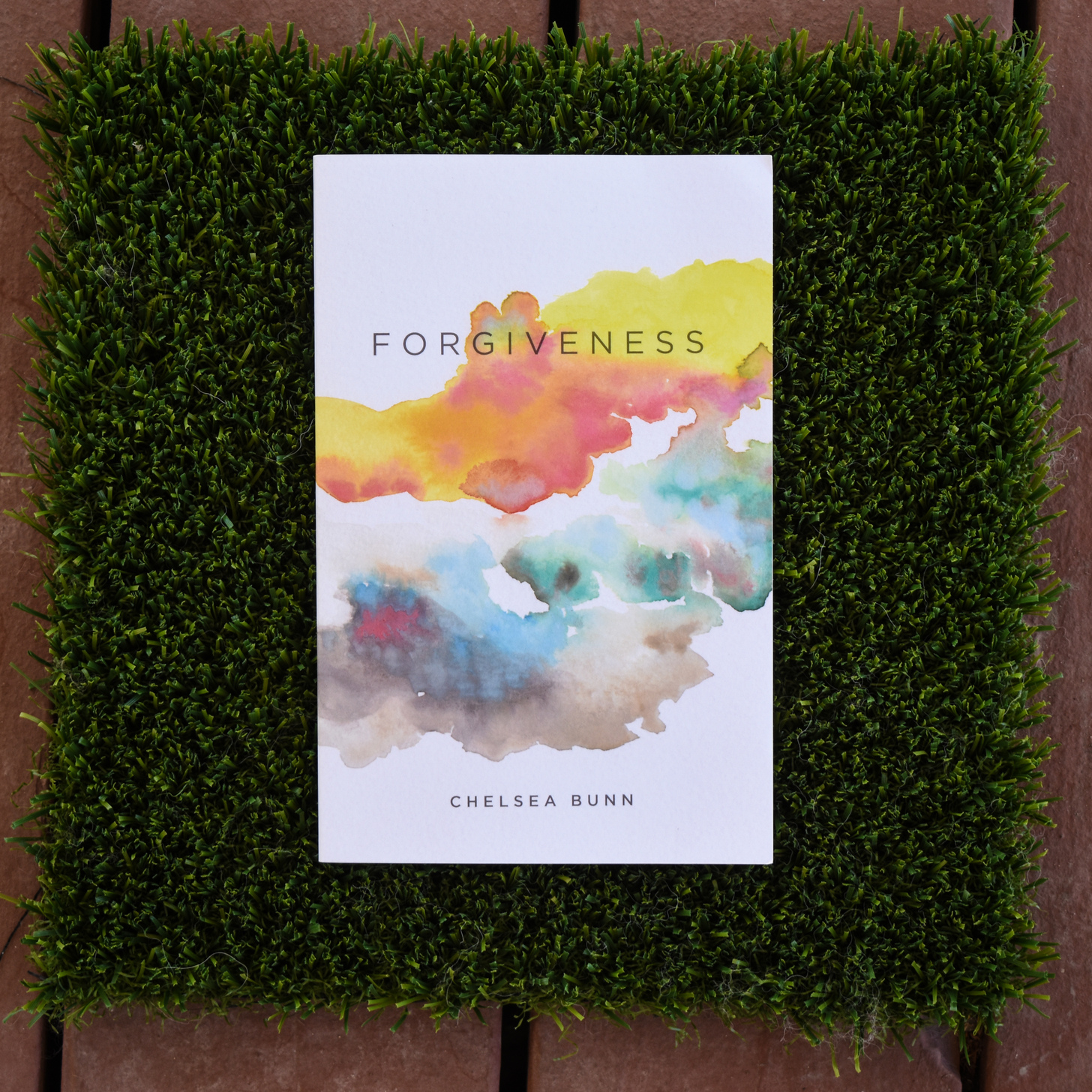Chelsea Bunn’s book of poetry Forgiveness takes its title from its eleventh poem, which delivers a surprisingly entertaining expose of an experience at a therapist’s office working on self-forgiveness. There is a story and an arc to this book of poetry. The book begins by passing judgment on others, which turns into self-examination. That self-examination becomes confessional and achieves some semblance of self-forgiveness as a step toward recovery from the loss of a loved one. Upon this achievement, the last seven poems stress the unrelenting grief even after forgiveness until ultimately engaging the reader in a poetic illustration of the desert. The point of this illustration is to ponder the desert’s capacity to turn all things to dust. Bunn, the author, lives in New Mexico.Forgiveness begins with a hymnlike poem inspired by the typical daily horoscopes for a Cancer —someone born between mid-June and mid-July. To put my cards on the table, this instantly amused me; I take a guilty pleasure in researching my zodiac on occasion. Even if you have no interest in horoscopes, you might still appreciate the cleverness of a comparison between a poem and a horoscope. Cancer features the concept of forgiveness within the first stanza, presenting the theme promised in the title of the work. The second poem is a commentary on the perils of being a young woman and lingers on the concept of praise. Litany praises the body for its resilience, resolve and tender grief. Following Litany is a poem that explicitly states what it is about. Bunn prefaces These Stories are True with, “This poem is an erasure of the statements made by Senator Al Franken, Kevin Spacey, Harvey Weinstein, Jeffrey Tambor, and Louis C.K. (respectively) after they were accused of sexual misconduct.” This poem is sectioned to deliver five respective accounts through Bunn’s poetic rendering. The theme of forgiveness appears with respect to Louis C.K.’s statement, “They tried,/ I think,/ to forgive,/ which is nothing/ to me,/ a man given/ to hurt.” After this poem, the poems become darker and more overtly confessional. This is the shift mentioned earlier from external judgment to internal damnation. The poems that follow These Stories are True include discussions of alcoholism, marital discord, depression, the death of a father and the road to recovery. After the poem Forgiveness, the poems continue to depict unyielding grief, but cease to depict unyielding guilt. A sense of solace is found at last in the desert through an illustration of spiritual acceptance that all things must return to the Earth.Locals should appreciate the desert flavor and clear influences from Navajo culture. Bunn is currently an assistant professor at Navajo Technical University. Her poetry prowess is remarkable and her stories are inspirational, albeit what appears to be a somewhat nihilistic worldview is portrayed at times. As a whole, Forgiveness reads like a novella or a memoir with a more formal composition for its prose. It is a palatable read about some of the darkest aspects of human existence, which is quite the feat in my opinion.
ForgivenessBy Chelsea BunnReading and Q&ASaturday, July 27 at 11amSouth Broadway Library1025 Broadway Blvd. SEFree




